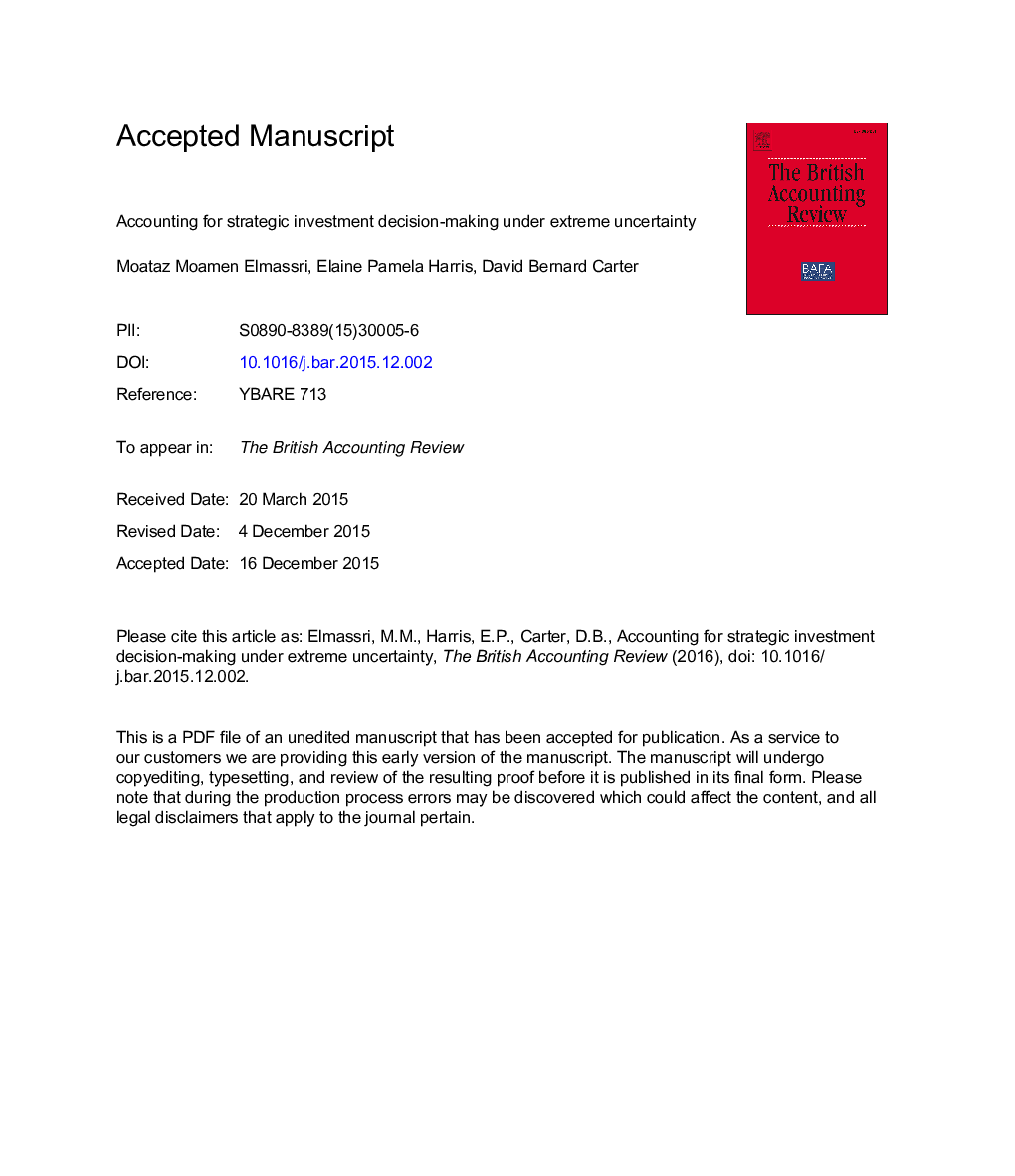| Article ID | Journal | Published Year | Pages | File Type |
|---|---|---|---|---|
| 10489378 | The British Accounting Review | 2016 | 47 Pages |
Abstract
This study focuses on processes employed by organisational managers making strategic investment decisions (SIDs) in an environment of extreme uncertainty in post-revolution Egypt. Our study illustrates how significant social, political and economic uncertainty impacts upon the utility of capital investment appraisal techniques employed in management accounting decision-making. To engage in this analysis, we employ strong structuration theory as a lens to examine how local Egyptian managers (agents-in-focus) respond to the impact of emergent structures that emanate from the post-revolutionary context in their strategic investment decision-making (SIDM). Our empirical evidence includes focused interviews with twenty-one local managers to understand the experience of accounting for decision-making under extreme uncertainty. Our analysis demonstrates that non-financial considerations and objectives take precedence over the technical 'accounting' measures, for example net present value (NPV) in post-revolution SIDM processes. In particular, recognising and responding to shifting labour power and short-term sacrifices (such as rejecting merger opportunities) become comparatively more important than the pre-supposed rationality of the NPV criteria. However, as multi-national corporations insist on the calculation of NPV by their Egyptian subsidiaries, local managers reproduce the imperfect NPV as a communication tool in relation to capital investment decisions, whilst resisting its persuasiveness in favour of more qualitative criteria.
Related Topics
Social Sciences and Humanities
Business, Management and Accounting
Accounting
Authors
Moataz Moamen Elmassri, Elaine Pamela Harris, David Bernard Carter,
